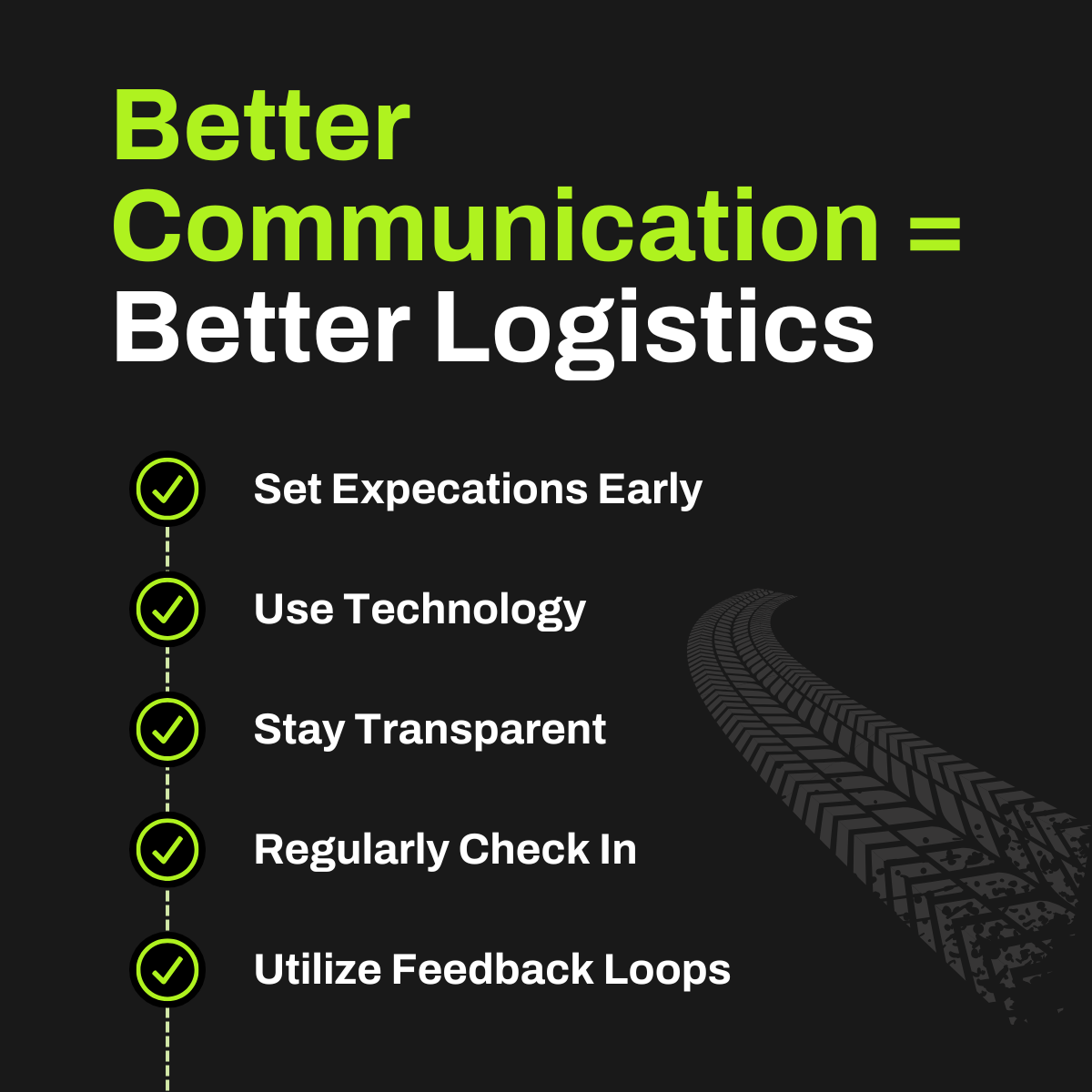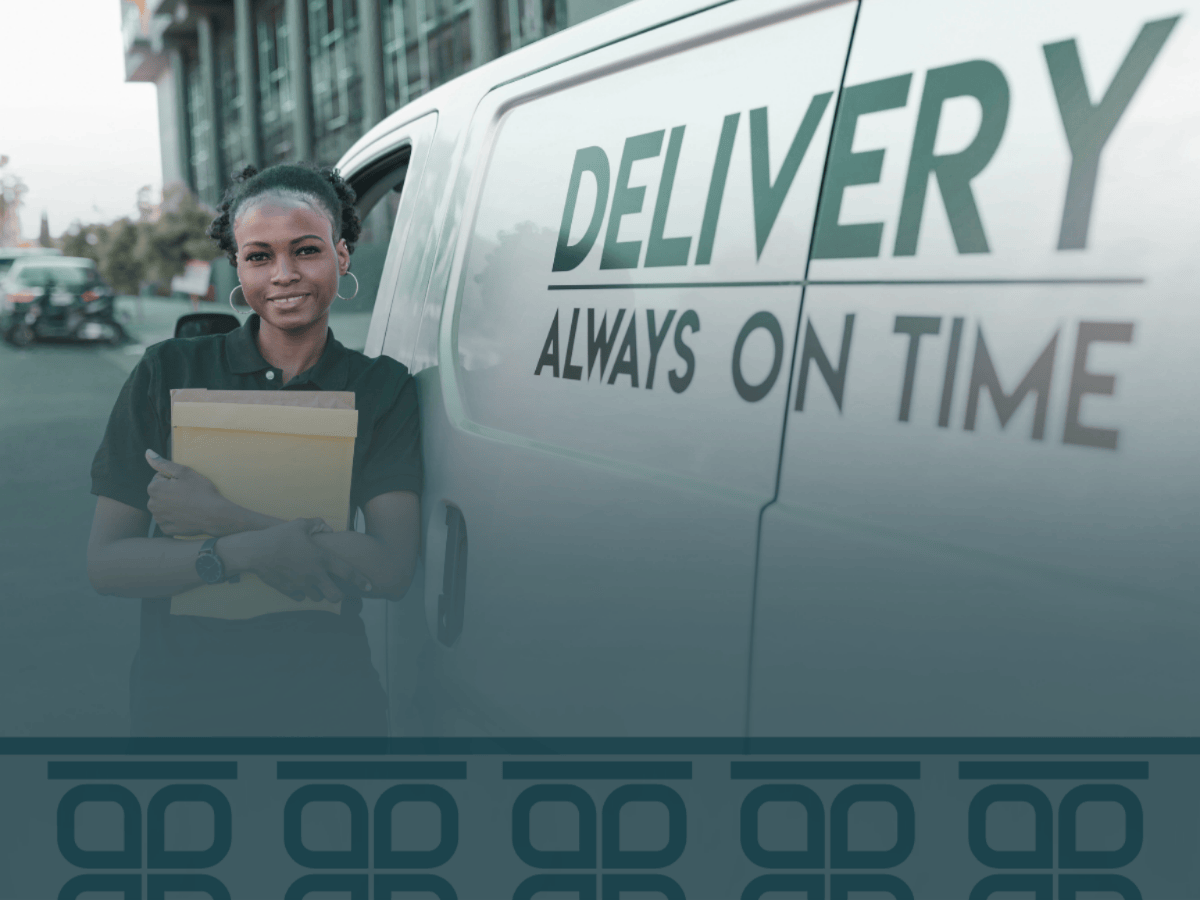Better Communication, Better Logistics: Tips for Smoother Collaboration

In logistics, every mile matters. Every load matters. And every word matters.
Think about the last time a shipment went sideways. Maybe the truck was late, the dock wasn’t ready, or a critical update didn’t make it through. The ripple effects are real: late arrivals, higher costs, frustrated drivers, and disappointed customers.
In a world where margins are tight and stakes are high, poor communication isn’t just an inconvenience. It’s a liability.
But here’s the good news: communication is one of the most controllable parts of the supply chain. While we can’t always prevent traffic jams, storms, or labor shortages, we can prevent misunderstandings. And when communication is strong, challenges don’t just get solved faster, they sometimes don’t become problems at all.
That’s the power of clear, proactive collaboration.
Why Communication is the Backbone of Logistics
Supply chain professionals know that transportation is a moving puzzle. Trucks, shippers, carriers, warehouses, customers; each one is a piece, and they don’t always fit neatly together.
What keeps the puzzle from falling apart isn’t luck. It’s communication
- When expectations are clear, everyone knows their role.
- When updates are timely, surprises are minimized.
- When feedback flows both ways, partnerships strengthen instead of strain.
In logistics, clear communication isn’t just helpful, it is essential. Misunderstandings can lead to delays, increased costs, and frustrations on all sides.
If we want to deliver consistency, build trust, and move freight with confidence, communication must be treated like a core service, not an afterthought.
The Cost of Miscommunication
Before we dive into solutions, let’s get real about the risks of getting communication wrong.
- Delays multiply: One missed email can trigger hours of downtime.
- Costs escalate: Extra detention, rescheduling, or re-routing eats into margins.
- Relationships strain: Shippers lose confidence in providers, carriers feel undervalued, and finger-pointing begins.
- Morale drops: Drivers, dispatchers, and logistics teams get frustrated when they feel left in the dark.
The truth is, freight doesn’t just move on highways, it moves on information. If the information isn’t flowing, the freight won’t either.
Five Practical Tips for Smoother Collaboration
Strong communication isn’t complicated, but it does require discipline. Here are five tips that every shipper, broker, and carrier can put into practice.
1. Set Expectations Early
Don’t assume everyone is on the same page; get it in writing.
- Define timelines upfront: pickup windows, delivery deadlines, and critical cutoffs.
- Clarify responsibilities: who’s confirming appointments, who’s sending updates, who’s managing exceptions.
- Agree on communication channels: email, portal, phone, or messaging platform. Pick one and stick with it.
When expectations are set early, you remove ambiguity before it has a chance to create friction.
2. Use Technology Wisely
Technology isn’t just about efficiency, it’s about visibility.
- Track shipments in real time: Give stakeholders access to the same data.
- Automate proactive updates: Don’t wait for someone to ask, “Where’s the truck?” send the information before they need it.
- Integrate systems where possible: Reduce the number of times data has to be re-keyed, which lowers the risk of errors.
The right tools can’t replace relationships, but they can amplify them. When data is transparent, trust grows.
3. Stay Transparent
No one likes delivering bad news, but silence makes problems worse.
- Be honest about potential delays or challenges.
- Share early warnings. Customers and carriers can often adapt if they know soon enough.
- Avoid sugarcoating. Clarity builds credibility, even when the update isn’t positive.
Transparency turns conflict into collaboration. When people feel you’re upfront, they’re more likely to work with you to find a solution instead of against you.
4. Regular Check-Ins
Logistics isn’t “set it and forget it.”
- Hold short weekly or biweekly, even daily if needed, touchpoints to align priorities.
- Use meetings to surface concerns, share learnings, and plan for upcoming demand.
- Keep it consistent. Predictable check-ins prevent last-minute fire drills.
The cadence doesn’t have to be heavy. Even a 15-minute call can prevent a week’s worth of issues.
5. Utilize Feedback Loops
The best partnerships evolve, and feedback is the fuel.
- Encourage carriers and shippers to share what’s working and what isn’t.
- Close the loop by acting on the feedback, not just collecting it.
- Celebrate improvements. Small wins reinforce that feedback makes a difference.
When feedback is welcomed, communication feels safe, and safe communication leads to stronger performance.
Building a Culture of Communication
It’s one thing to check boxes on best practices. It’s another to make communication part of your DNA.
The companies that consistently deliver in logistics aren’t just good at routing trucks, they’re good at building relationships. And at the heart of every strong relationship is communication.
- Leaders set the tone: If managers emphasize communication, teams will follow.
- Drivers deserve a voice: They’re often the first to spot problems; empower them to share feedback.
- Customers feel the difference: When communication is proactive, they notice, and they remember.
Culture is contagious. When communication becomes the norm, collaboration becomes second nature.
The Hero’s Role in Logistics
If you’re a supply chain professional, you already know the pressure. Loads don’t move themselves. Problems don’t solve themselves.
But here’s the thing, every time you pick up the phone, clarify a detail, or send an update before it’s asked for, you’re being the hero in someone else’s supply chain story.
- To the shipper, you’re the one who saves them from explaining a late delivery to their customer.
- To the driver, you’re the one who helps them avoid detention and keep their day on track.
- To your own team, you’re the one who replaces chaos with clarity.
Communication isn’t glamorous, but it’s heroic. Because in this business, what’s at stake isn’t just freight, it’s trust.
The Everyday Wins
Sometimes, the difference between a bad week and a great one is as simple as better communication.
- A quick text confirming the dock is ready.
- A proactive email about a storm that could cause delays.
- A check-in call to verify next week’s schedule.
These small actions compound over time. They reduce friction, build loyalty, and protect margins. They’re the everyday wins that separate average operations from excellent ones.
Exploring What’s Next
The logistics industry is evolving fast; automation, AI, and predictive analytics are changing how we move freight. But no matter how advanced the tools become, communication will always be the human glue that holds it together.
The explorers in this industry, the ones willing to test new systems, embrace new processes, and challenge old habits, are proving that better communication doesn’t just make today smoother. It makes tomorrow stronger.
Because at the end of the day, technology can assist, but people create trust. And trust is what keeps freight flowing.
Final Thoughts: Better Communication, Better Logistics
If there’s one truth in this industry, it’s this: better communication equals better logistics. It reduces costs. It prevents delays. It strengthens partnerships. And it turns the unpredictable world of supply chains into something just a little more reliable. Start with the basics; set expectations, use technology, stay transparent, check in regularly, and create feedback loops. Then build from there. Make communication your edge. Because in logistics, the companies that win aren’t the ones who avoid every challenge, they’re the ones who face challenges together, head-on, with clarity and confidence.
At Service First Logistics, we believe freight is built on relationships, and relationships are built on communication. We partner with shippers and carriers to create trust through transparency, consistency, and a service-first approach.
If you’re looking for a logistics partner who values communication as much as execution, let’s start the conversation.
Because when communication improves, everything else does too.



